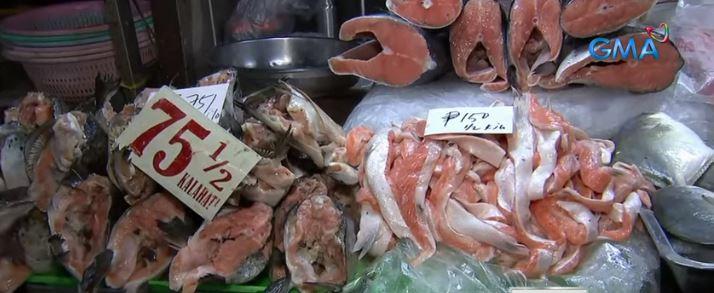Ombudsman orders probe into 'late' BFAR AO implementation; exec explains matter

Ombudsman Samuel Martires ordered an investigation into the alleged delay in the implementation of Fisheries Administrative Order No. 195.
In a copy of an order dated Friday, Nov. 25 posted on Twitter by Super Radyo dzBB, Martires ordered an investigation into why FAO No. 195 was only recently implemented by the Bureau of Fisheries and Aquatic Resources (BFAR) despite it being effective since 1999.
Briguera sa AO No. 195:Hindi lang naman ngayon ipinatupad, in fact yan ang gingamit nating batas pagdating sa pagbibigay ng mga permit doon sa mga importers kapag ang kanilang market destination ay institutional buyers, nagkataon lang na nagkaroon tayo ngayon ng massive campaigns pic.twitter.com/4scdihF3IW
— DZBB Super Radyo (@dzbb) November 26, 2022
The said FAO allows the importation, without the need for a certificate of necessity to import (CNI), fresh/chilled/frozen fish and fishery/aquatic products for canning and processing purposes, including those undertaken by institutional buyers or accredited entities importing fish for final consumption or food requirements of hotels and restaurants, the BFAR said.
Martires ordered that the concerned official/s of BFAR submit a sworn statement about the matter within three calendar days from receipt of the order.
The Ombudsman order came days after the BFAR announced it was rolling out an information, education and communication campaign against the selling in wet markets of imported fish unauthorized for such markets but were diverted from those in the canning, processing, and institutional buyers.
The BFAR on Thursday said it would start confiscating imported pampano and pink salmon being sold in wet markets starting December 4, saying its sale is illegal.
BFAR executive Nazario Briguera however said FAO No. 195 has long been implemented.
"Hindi lang naman ngayon ipinatupad. In fact 'yan ang ginagamit nating batas pagdating sa pagbibigay ng mga permit doon sa mga importers kapag ang kanilang market destination ay mga institutional buyers. Nagkataon lang talaga na nagkaroon tayo ngayon ng massive information dissemination campaign," Briguera said in an interview on Dobol B TV on Saturday.
"Base ito sa mga feedback sa mga nakaraan buwan na naging flooded talaga ang mga market ng mga hindi awtorisadong isda," he added.
Briguera said it is not just imported pink salmon and pampano which were seen in wet markets. There were other fish as well.
The BFAR official advised consumers in wet markets to ask vendors first if the fish being sold have appropriate permits. This includes the local transport permit given to cover imported fish.
"Anumang uri ng imported na isda na walang kaukulang papeles at hindi awtorisadong ibenta sa wet market ay bawal," Briguera said.
He added that BFAR noticed there were a lot of imported fish recently seen in wet markets.
"Kailangan nang pumasok ang pamahalaan para ma-regulate ito," Briguera said.
The BFAR executive said some importers may have acted in bad faith and diverted to wet markets the imported fish meant for canning and processing, and for institutional buyers.
"Talagang nagsamantala sa import permit na ibinigay sa kanila," he said. —KG, GMA Integrated News




